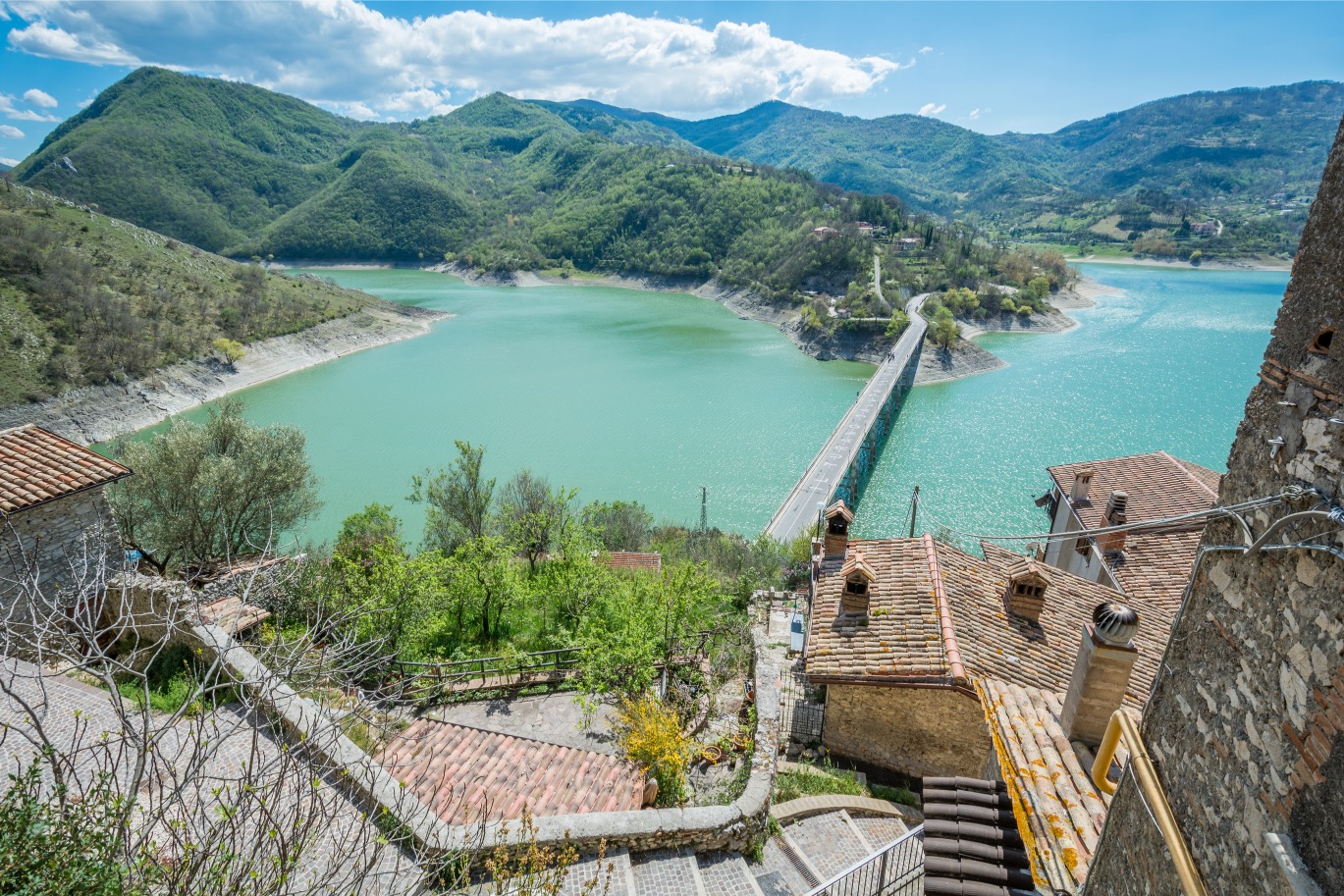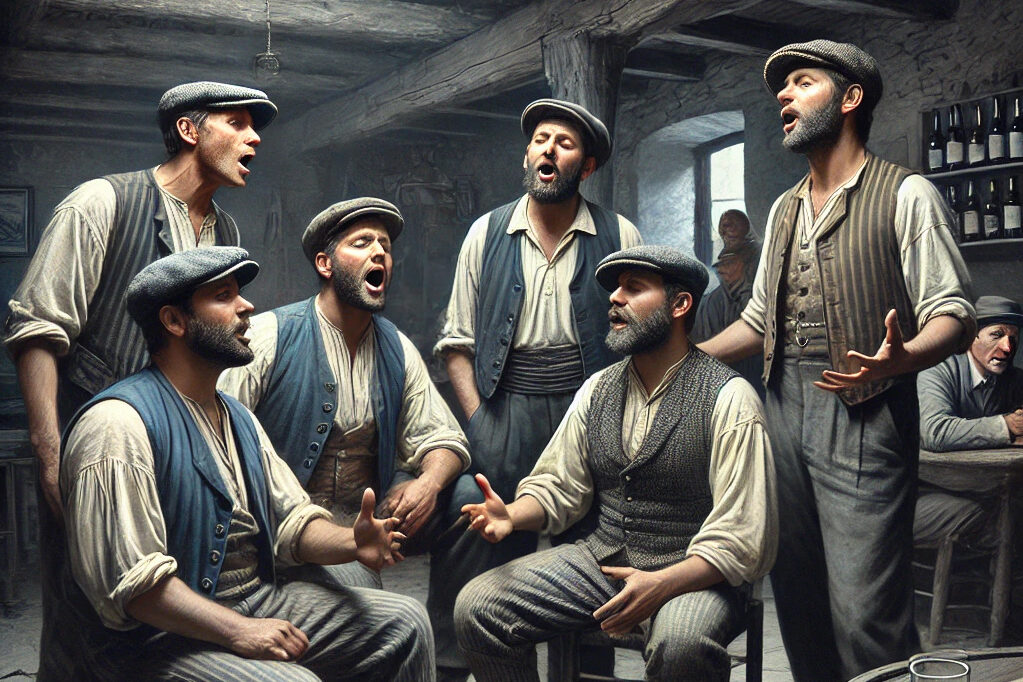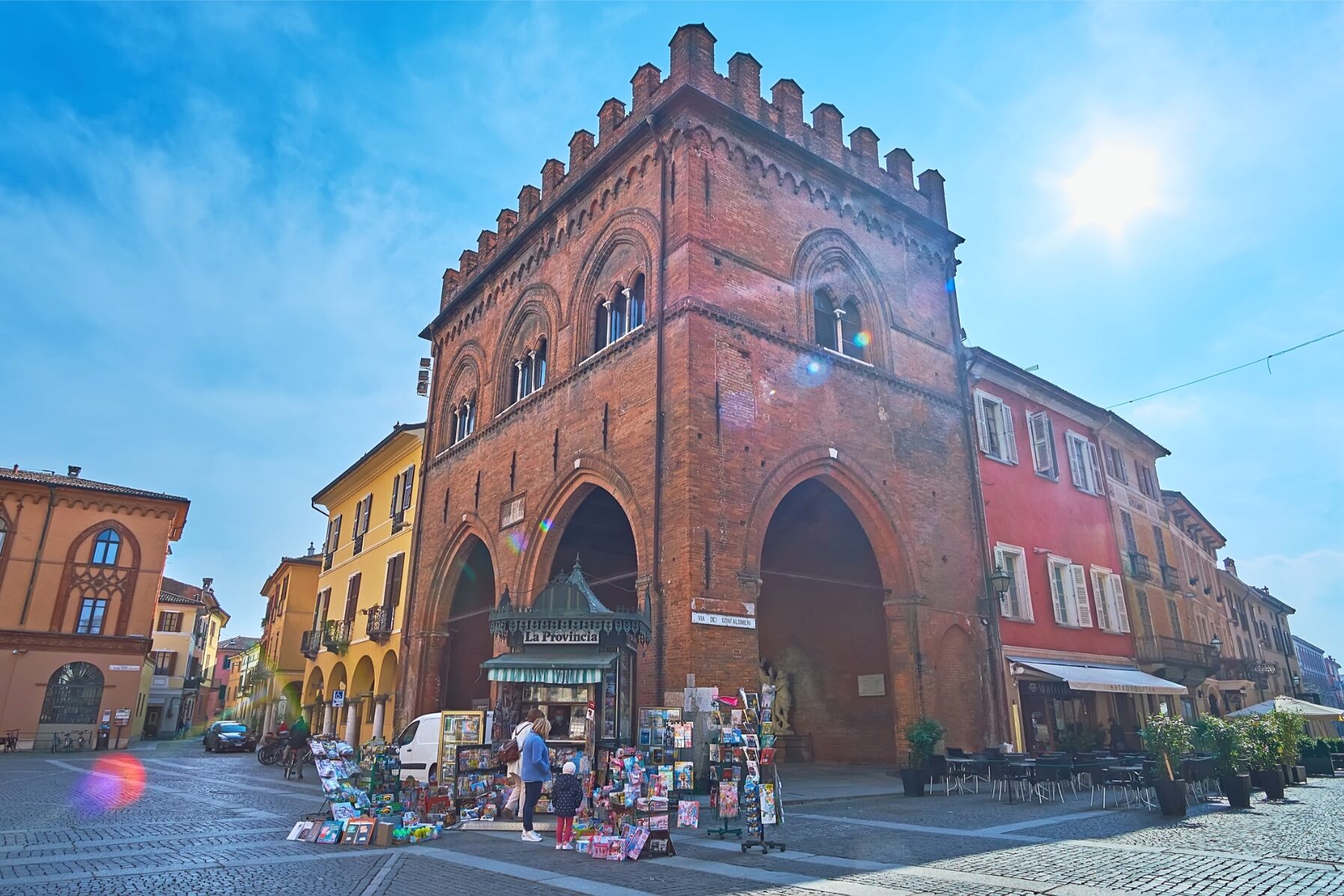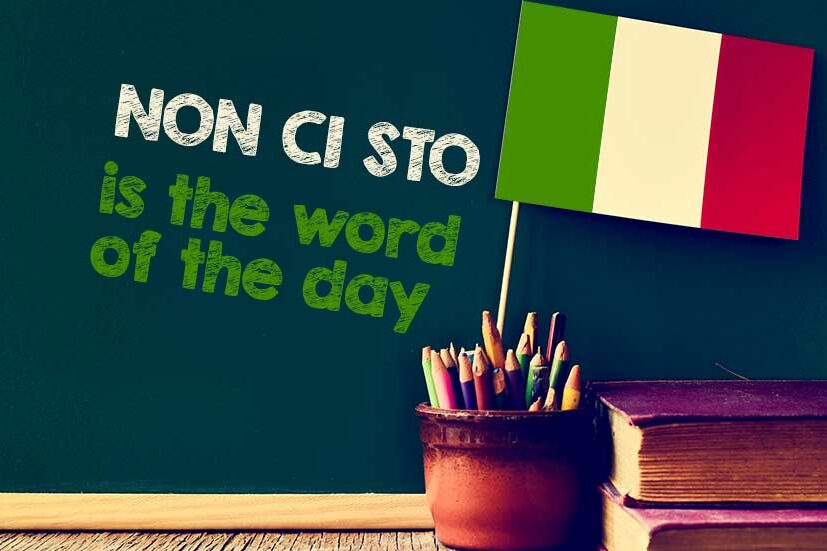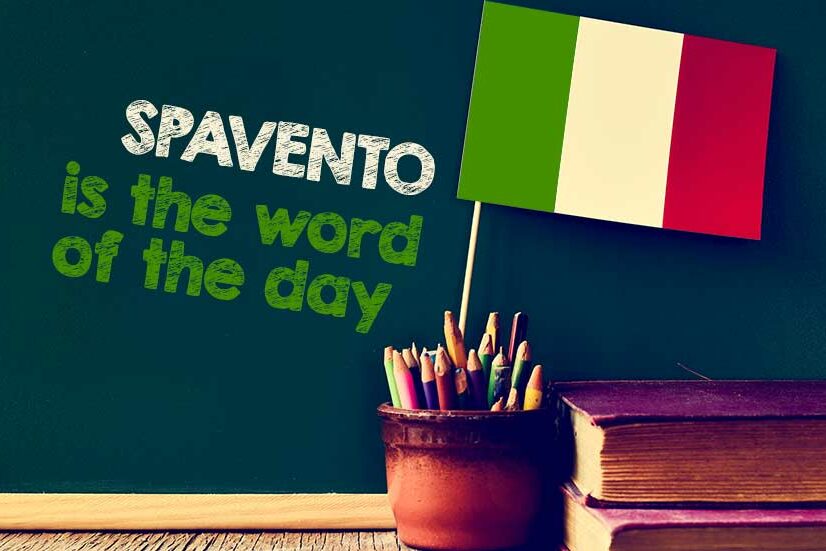When Niccolo Machiavelli penned his masterpiece, The Prince, Italy was a land divided and besieged by many foreign forces. In his last chapter, “An Exhortation to free Italy from the Hands of the Barbarians,” he calls for new weapons and formations to be used in warding off intruders and to prepare for new leadership of Italy. In many ways, the current state of Italian/American culture is in similar straights. We need new tools and new alliances to bring a sense of unification to our culture so that we can ward off the siege of total assimilation.
For many years, Italian/ American culture has been preserved in the homes, and over the years, more likely than not, in the basement or what Italian Americans have come to call the “basciument,” where grandpa made wine, where grandma had a second kitchen, and now where we store our material legacies and memories. Outside celebrations such as religious feste became the most important public presentation of Italian/ American culture, but these annual events were never frequent enough to protect Italian/American culture from the regular mass media bombardment of negative stereotypes.
Where Italian Americans have never organized as a cultural group is in the mainstream institutions of education. The public programs that might have taught Italian Americans the value of their own culture and subsequently fortified future generations, the public programs that would have challenged media-made impressions, were never created. We have kept our heads in our basements where Italian/American culture is safe inside family celebrations.
Now is the time to move beyond the basements of yesterday and out into the streets of today. The romance and tragedy of early 20th century immigration can no longer serve as models for identity. The key to creating a meaningful sense of Italian/American culture that means something to today’s youth is to first insure that they have access to histories, of their families and of their communities, then we must provide them with historical and contemporary models in the areas of arts, business, and education, that they can study, emulate and transcend. We have created scholarships for higher education, but we have done little to help those applicants understand what it means to be Italian American once they enter those institutions. This knowledge comes best when it is found in the very materials those students study, in the very stories they hear and read from childhood up through graduate school.
At the end of a section of her novel, Umbertina, Helen Barolini has the matriarch of a family sitting by herself near a tree during a family reunion picnic. She looks around and is proud of what she and her husband created out of the nothing that they brought with them to America. But then, there is a sadness that overcomes her to the point of tears, and that is when she comes to realize that of all the relatives here, there is no one to whom she can tell her story. Not one of her daughters or sons, granddaughters or grandsons, can nor will they ever know her story.
She had won, but who could she tell her story to? At times the doubt came to her whether she had really won, after all. All her life had been a struggle for family, and now in her old age she saw some signs that made her uneasy….
It is not long before this uneasiness, becomes a dis-ease of sorts, and many of you know that it is not simply the stuff of novels. This occurs in every family in which the experience of one generation was denied entry into the consciousness of the next. More often then than not, this occurred when the language of the immigrants was not passed on to their children.
Remember, the immigrants’ experiences were processed in Italian, and were they not recorded, not passed on from one generation to the next, it mostly like was due to the impossibility of communicating such complex thoughts and feelings in a new language. By the time I learned to speak, read, and write Italian, my grandparents were dead and my parents stopped speaking the language. What was lost only I could imagine, so I went in search of those stories.
What I found was that while they couldn’t control how they passed down a heritage through conscious stories, they did pass down some unconscious elements that we must understand before we can succeed as a culture. Many of our stories have been exploited by others to make money. When we wish to tell our stories, no one wants the ones that won’t make money. A publisher told me that while my novel was a good story, I should change the characters to Jews because Jews read and Jews buy books. I was appalled, and that was my call to become the professor and writer you are now reading.
If we don’t tell our stories, if we don’t preserve them, then we will not have a culture to either protect or promote. When we don’t tell our stories, we lose our souls. When someone else tells our story, they steal our souls. When we let them steal them, we are accomplices in an ethnic and cultural suicide.
New alliances can be made by connecting the Italian U.S. American Italian experiences with those of Italian immigrants throughout the rest of the world. This focus on Italian Diaspora studies, something done through the collaboration of the John D. Calandra Italian American Institute of Queens College and the University of Calabria in Rende through their annual summer seminar; and this year the National Italian American Foundation and the Italian American Studies Association are teaming up to create a joint-conference that will help us see better into the future of Italian American cultures and identities.
Quando Niccolò Machiavelli compose il suo capolavoro, Il Principe, l’Italia era una terra divisa ed assediata da molte forze straniere. Nel suo ultimo capitolo, “Esortazione per un’Italia libera dalle Mani dei Barbari”, auspica nuove armi e strumenti da usare per difendersi dagli invasori e preparare la nuova classe dirigente dell’Italia.
Per molti versi, lo stato attuale della cultura italo-americana è in una condizione simile. Noi abbiamo bisogno di attrezzi nuovi e di alleanze nuove per portare un senso di unificazione alla nostra cultura così da poterci difenderci dall’assedio di un’assimilazione totale.
Per molti anni, la cultura italo-americana è stata conservata in casa, e durante il corso degli anni, più che altro, nella cantina o in ciò che gli italoamericani hanno chiamato il “basciument”, là dove il nonno faceva il vino, dove la nonna aveva una seconda cucina, e dove ora noi immagazziniamo i nostri lasciti materiali e i ricordi. A parte celebrazioni come le feste religiose diventate le più importanti manifestazioni pubbliche della cultura degli italoamericani, ma questi eventi annuali non sono mai stati frequentati abbastanza da proteggere la cultura italoamericana dal regolare bombardamento massmediatico di stereotipi negativi.
Il luogo in cui gli italoamericani non si sono mai organizzati come gruppo culturale è nelle principali istituzioni educative. I programmi pubblici che avrebbero dovuto insegnare agli italoamericani il valore della loro cultura e di conseguenza avrebbero fortificato le generazioni future, i programmi pubblici che avrebbero sfidato le impressioni prodotte dai media, non sono mai stati sviluppati. Abbiamo tenuto la testa nelle nostre cantine dove la cultura italoamericana è al sicuro dentro le celebrazioni di famiglia.
Adesso è arrivato il momento di uscire dalle cantine di ieri e venir fuori nelle strade di oggi. Il romanzo e la tragedia dell’immigrazione dell’inizio del 20° secolo non possono servire più come modelli per l’identità.
L’importanza di dare un senso alla cultura italoamericana che significhi qualcosa per i giovani di oggi, sta innanzitutto nell’assicurare a loro l’accesso alle storie, delle loro famiglie e delle loro comunità, poi dobbiamo dare loro modelli storici e contemporanei nel campo delle arti, degli affari, dell’istruzione che loro possano studiare, emulare e trascendere.
Abbiamo creato borse di studio per l’istruzione superiore, ma abbiamo fatto poco per aiutare gli studenti a capire quello che significa essere italoamericani una volta dentro quelle istituzioni. Questa conoscenza migliora quando si trova in molti materiali di studio, nelle tante storie che ascoltano e leggono dall’infanzia alla scuola superiore.
Alla fine di un capitolo del suo romanzo, Umbertina, Helen Barolini descrive la matriarca di una famiglia seduta da sola vicino a un albero durante un picnic che riunisce la famiglia. Lei si guarda attorno ed è orgogliosa di quello che lei e suo marito hanno creato dal nulla che avevano portato con loro in America. Ma poi subentra una tristezza che la sopraffà al punto da farla piangere, e questa arriva quando lei si rende conto che di tutti i parenti presenti non c’è nessuno a cui lei può raccontare la sua storia. Nessuno delle sue figlie o dei suoi figli, delle nipoti o dei nipoti, conosceranno mai la sua storia.
Aveva vinto, ma a chi avrebbe raccontato la sua storia? Al momento le venne il dubbio se lei avesse davvero vinto, dopotutto. Tutta la sua vita era stata una lotta per la famiglia, ed ora nella sua maturità vedeva segnali che la facevano sentire a disagio…
Non passa molto che questo disagio diventa un disagio di genere, e molti di voi sanno che non è semplicemente roba da romanzi.
Questo accade in ogni famiglia in cui l’esperienza di una generazione non ha avuto accesso alla coscienza della successiva. Più spesso di quanto non si creda, questo è accaduto quando la lingua degli immigrati non è stata trasmessa ai loro bambini. Si ricordi che le esperienze degli immigrati sono avvenute in italiano e non sono state registrate, non sono passate da una generazione all’altra, e questo è soprattutto dovuto all’impossibilità di comunicare tali pensieri complessi e sentimenti in una lingua nuova. Quando io ho imparato a parlare, leggere, e scrivere in italiano, i miei nonni erano già morti ed i miei genitori avevano smesso di parlare in lingua. Quello che è andato perso lo posso solamente immaginare, così sono andato alla ricerca di queste storie.
Quello che ho capito è che mentre loro non potevano controllare come trasmettevano un’eredità attraverso storie consapevoli, loro tramandavano anche elementi inconsapevoli che noi dobbiamo capire se vogliamo diventare una cultura.
Molte delle nostre storie sono state sfruttate da altri per guadagnarci soldi. Quando vogliamo raccontare le nostre storie, nessuno vuole quelle che non fanno guadagnare. Un editore mi disse che mentre il mio romanzo era una buona storia, avrei dovuto cambiare i personaggi in ebrei perché gli ebrei leggono e gli ebrei comprano libri. Ne fui sconcertato, e quella è stata la ragione della mia scelta a diventare il professore e lo scrittore che ora state leggendo.
Se noi non raccontiamo le nostre storie, se noi non le preserviamo, non avremo poi una cultura da proteggere o promuovere. Quando non raccontiamo le nostre storie, perdiamo le nostre anime. Quando altri raccontano la nostra storia, questi altri ci rubano le nostre anime. Quando noi le facciamo rubare, siamo complici di un suicidio etnico e culturale.
Si possono fare nuove alleanze connettendo le esperienze degli italoamericani degli Usa con quelle degli immigranti italiani in tutto il resto del mondo. Per mettere a fuoco gli studi sulla diaspora italiana, qualche cosa viene fatto tramite la collaborazione del John D. Calandra Italian American Institute del Queens College e l’Università di Calabria in Rende attraverso il loro seminario annuale estivo; e quest’anno l’Italian American Studies Association si sta organizzando per organizzare una conferenza congiunta che ci aiuterà a guardare meglio al futuro delle culture e delle identità italoamericane.





